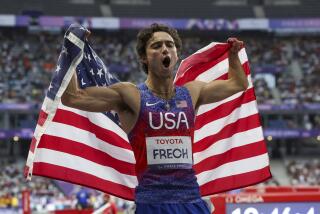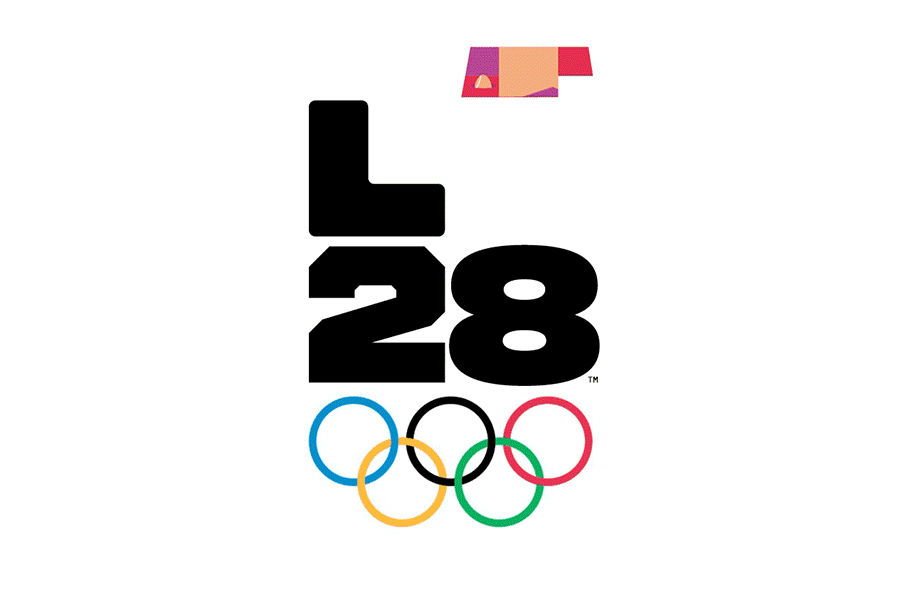Does Los Angeles have a shot at hosting the 2024 Summer Olympics?
No one doubts that Los Angeles is ready, willing and able to host another Summer Olympics.
There are a handful of major league sports venues and an ample fan base, not to mention a reliably sunny climate, all of which contributed to two successful Games in the past.
“L.A. is the one place in the world that is always ready to host,” said Anita DeFrantz, an International Olympic Committee member and longtime resident. “It’s a city that loves sports.”
But that doesn’t mean the U.S. Olympic Committee or the IOC necessarily favors returning to Southern California.
As Los Angeles pursues the 2024 Olympics — domestic and international bidding will continue for nearly four years — local organizers must navigate a series of challenges.
“It’s going to be tricky,” said Robert Livingstone, whose GamesBids.com will track the process. “They have obstacles to overcome.”
Start with money. The Olympics always start with money.
When the USOC sent out feelers to 35 major U.S. markets last month, it warned about the size and scope of the undertaking, telling potential candidates the operating budget for the Games could exceed $3 billion, not including cost of venue construction and other infrastructure.
London ended up spending more than $15 billion on the 2012 Summer Games.
That seems particularly expensive given Los Angeles’ current budget crisis. Earlier this month, voters defeated a sales tax hike aimed at lessening the budget gap.
“Los Angeles might have to come to grips with the same issues that other cities are considering,” said Ed Hula, editor of Around the Rings, a publication that chronicles the Olympic movement. “They have to ask, ‘Can we really afford it?’”
The USOC, which will submit a single American candidate in 2015, hopes to streamline the domestic process by replacing formal presentations with informal discussions, at least during the early stages. That could greatly reduce the millions of dollars that cities have spent during recent cycles.
The Southern California Committee for the Olympic Games will seek private donations for its bid effort, President David Simon said. He points back to 1984.
“Anyone who was here will remember the Games were privately funded and took in more money than they cost,” he said. “We would hope to do the same thing again.”
Los Angeles holds a financial edge because it would not have to build much in the way of stadiums and arenas. But that could also be a negative.
Though venues such as Staples Center, Honda Center and Home Depot Center would be new to the Olympics, the Coliseum and Rose Bowl might seem too familiar, which raises the question: Will Los Angeles be viewed as a retread?
The USOC, for one, doesn’t think so.
“London has hosted the Games three times,” said Scott Blackmun, the committee’s chief executive. “It’s clearly not a disadvantage.”
IOC members might have a different take.
They like to make inroads in parts of the world where the Olympic movement does not have a strong presence. And for all of their talk about controlling costs, they have chosen the likes of Rio de Janeiro, Sochi, Russia, and Pyeongchang, South Korea in recent bid votes.
Even London produced a new Olympic complex in the rundown eastern part of the city, erecting a cluster of gleaming white — if temporary — arenas.
“The IOC keeps selecting cities that have to build a lot,” Livingstone said. “It could be an ego thing — they like having venues built for them.”
So Olympic experts wonder about Los Angeles’ chances. Asked for a short list of domestic favorites, they place potential candidates such as San Francisco, Boston and New York at the top.
Dallas has also formed an exploratory committee and other, smaller cities have expressed interest, but Hula said: “the Cincinnatis of the world … the USOC won’t really consider them.”
The 2024 Summer Games represent an important choice for American officials.
A disagreement over revenue sharing had strained relations between the U.S. and the IOC during recent bid cycles. Simply put, the Olympic movement wanted more of the money that flowed from American broadcasters and corporations, which DeFrantz has described as 60 cents of every dollar coming in.
Under a long-standing deal, the USOC received 20% of the IOC’s global sponsorship revenue and 12.75% of the U.S. broadcast rights fee. That left 203 national Olympic committees to share the rest.
As negotiations for a new arrangement dragged on, IOC members ousted Chicago in the first round of final voting for 2016 and the U.S. stopped submitting candidates.
Last spring, the two sides agreed to a split that — beginning in 2020 — will reportedly give the USOC a similar cut but only 7% of any increases in U.S. broadcast fees and 10% of increases in sponsorship money.
The USOC has also sought to become more involved in the movement, attending Olympic meetings and events worldwide. The question is: Are IOC members sufficiently mollified to vote for an American city?
“It’s no longer an issue,” said DeFrantz, who also serves on the Southern California Olympic board.
So the time might be right for a U.S. bid. No American city has hosted the Olympics since Salt Lake City in 2002 and no Summer Games since 1996 in Atlanta. The IOC has, perhaps, quenched its thirst for exotic locales with Brazil and South Korea on the calendar through 2018.
“It may be coming around toward a more conventional type of choice,” Hula said. “Less adventuresome, less risk.”
In the not-so-distant future, Los Angeles must craft the kind of narrative — Why here? Why now? — that IOC voters look for.
Much depends on the competition. It remains to be seen which other U.S. cities will fight for the domestic bid, and which international cities will vie for 2024.
At this point, DeFrantz doesn’t bother to place odds on Los Angeles’ chances.
“Selecting a city, it’s such a unique thing,” she said. “For every argument that is made, I can show the exception.”
twitter.com/LATimesWharton
More to Read
Go beyond the scoreboard
Get the latest on L.A.'s teams in the daily Sports Report newsletter.
You may occasionally receive promotional content from the Los Angeles Times.










